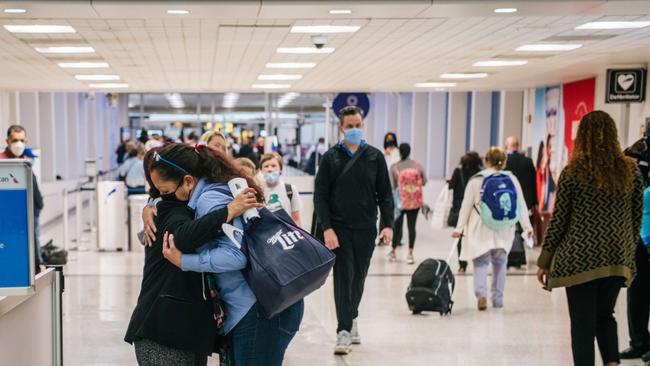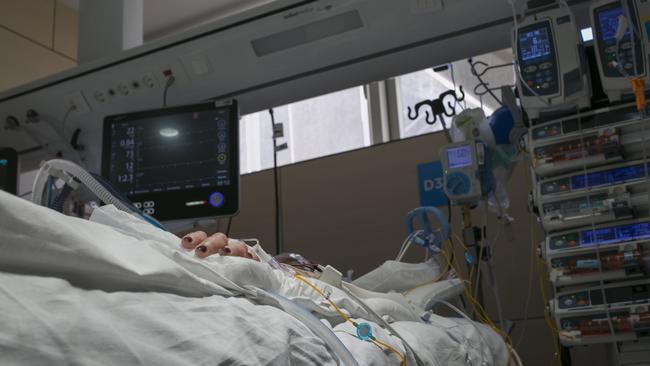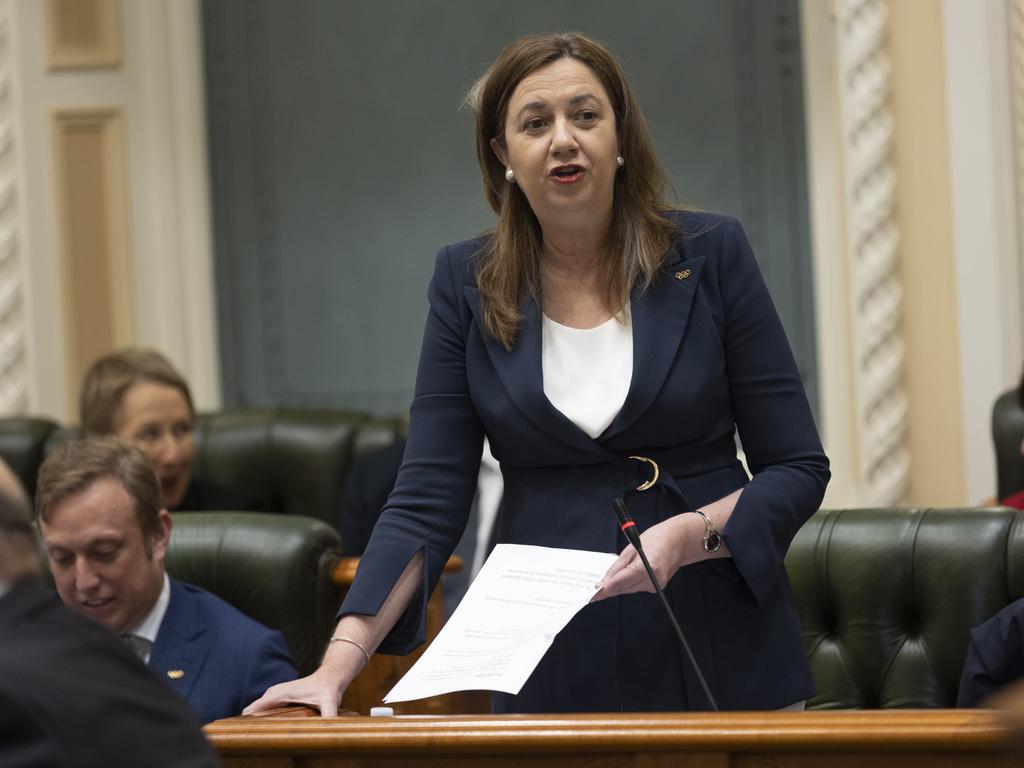Omicron takes on Delta as a wary world watches and waits
It’s the virus equivalent of Godzilla v King Kong. Omicron is a gamechanger that will alter the course of this crisis.

Which monster do we want to win? For when they’ve sorted out their own ranking in the virus variant lethality and dominance contest, we’ll have to fight the winner. We’ve just about learnt to live with Delta’s Godzilla, pushed it back partly where it came from. Omicron is a whole new ball game and, as with the first King Kong, we don’t yet know whether it’s our friend or our foe.
Drug company Moderna thinks it will know within a week whether its vaccine works against Omicron. That’s almost certainly overconfident. As the former deputy chief medical officer Nick Coatsworth told me in an interview: these cells are both the simplest and the smartest things on the planet.
We must never forget the scale of Covid-19’s devastation. Its official global death toll is five million. The Economist keeps updating its calculation of the real Covid death toll based on a sophisticated analysis of excess mortality rates, and it thinks Covid has killed more than 15 million people in its short two-year life so far.
Europe is undergoing its fourth wave. Austria and The Netherlands are both in effective lockdown. Even if vaccines are working well, there is a huge unvaccinated population ready to be infected. Britain, the US, Israel, Australia and many other developed nations have found that vaccine effectiveness wears off, so they are offering third doses – boosters – to get the antibodies back up.
Omicron was detected a little more than a week ago in South Africa. It’s now present in dozens of countries around the world. Its impact was immediate. Stockmarkets fell in the US and Europe, but also in developing nations. Japan and Israel closed their borders altogether. Britain and other nations banned travel from eight nations across southern Africa. Australia postponed for at least two weeks a planned opening to 200,000 visa-holders, and slightly increased its quarantine and testing requirements even of Australian citizens and residents returning home.
It’s not just that Omicron is new. The outbreak in South Africa was so spectacular. At the beginning of last month, 1 per cent of Covid tests in South Africa recorded positive. By the end of the month it was 16 per cent. If that pattern were repeated around the world, the results could be disastrous. The World Health Organisation says we should be “very concerned”. Britain’s official Scientific Advisory Group for Emergencies thinks “very strong” measures may be required to combat Omicron.
If Omicron spreads more quickly than Delta and has a similar death rate, we could be in a lot of trouble. But those are big ifs. The truth is we don’t yet know how Omicron is going to play out. The dark possibilities are still there, but there are also grounds to be cautiously optimistic.

Omicron is certainly going to change the course of Covid and change the course of our response to it. It will pose challenges in health, economics and politics, but the world is nervous because we don’t yet know just what those challenges will be.
There are six key questions we don’t know the answers to yet but will probably have a pretty good idea of within a couple of weeks.
They are:
● Is Omicron more infectious than Delta?
● Can it evade vaccines or other immunity more effectively than Delta?
● Does it produce on average more severe, or less severe, illness than Delta?
● Does it take a shorter or longer time than Delta to infect new victims?
● Does it produce great numbers of reinfections of people who’ve already had the virus than Delta does?
● Can it be reliably picked up in all the standard Covid tests administered to people?
At this stage, whatever anyone tells you, the answer to those questions is unknown. The early reports from South Africa of a milder illness are encouraging, but because they were concentrated disproportionately in younger people it’s not clear that this proves Omicron is milder than Delta.
I spoke to Health Minister Greg Hunt shortly after his gracious farewell speech in parliament. He emphasises the range of Covid variants and shrewdly observes it’s just too early to make the critical judgments on Omicron: “We’ve had almost 30,000 genomic sequence variations on the Australian database and 13 major variants have been identified by the World Health Organisation. This is a very interesting variant, it has the potential to dominate. Our cautious actions (delaying international border openings) were justified because we don’t yet know enough about it. Whilst we learn, we instituted the pause.
“There are many possible combinations of outcomes for Omicron. It’s possible it could be both milder and more vaccine resistant. The earliest signs are that it might be more transmissible, potentially less severe, with vaccine resistance yet to be determined.”
Potentially, if it’s more transmissible but less severe, that could be a wonderful result. It’s what we would wish for every deadly virus. Take up residence in our bodies if you must, but if you don’t kill us, or even make us too sick, you’ll be able to live long and happy virus lives.

But viruses are like voters in democratic elections, they seldom do as they’re told. But as Deakin University chair of epidemiology Catherine Bennett tells Inquirer, very few epidemiologists think Omicron will be radically less severe than Delta, maybe just a little less severe. And, she points out, if it is a bit less severe but radically more transmissible it could still lead to a big spike in hospitalisations.
The Australian policy objective, as with almost every nation in the world except China, is not to eliminate Covid altogether or keep it out altogether. That’s no longer possible if it ever was. The objective now is to keep hospitalisations and serious illness rates down so the hospital system is not overwhelmed. That means not only that it can cope if stretched with the Covid load but that it can do everything else it needs to do – treating heart disease, cancer, diabetes and everything else – and do it without completely destroying the lives and sanity of the health professionals, especially nurses and doctors involved in intensive care.
The Omicron variant is extremely weird and no one knows quite how or where it came about. It was first recognised in South Africa. That nation deserves the thanks of the world for being so transparent, so clear and so fast in its international notifications. The contrast with Beijing’s behaviour at the outbreak of the original Covid could not be more stark.
In imposing travel bans on South Africa, the world may have discouraged such honesty but it is not unreasonable for countries to ban, at least temporarily, inflow from heavily infected areas, especially with such a new and unknown variant.
As has been widely reported, Omicron has 30-odd mutations on the spike and another 20 mutations elsewhere in the cell. No other variant has shown so many mutations. There are different theories about how it came about. One is that it developed in a heavily immunocompromised person. Covid can stay alive in such people for months, whereas most people get well or die within weeks. For the immunocompromised, their immune system is not dead but it is not robust. It wages a feeble war against Covid the whole time. This is the perfect environment for Covid to make lots and lots of mutations.
Another theory is that Omicron jumped back from humans to an animal, did all its mutating there, then jumped back into humans. It was first detected in South Africa but there is some evidence it was alive and running in Europe before it got to Africa.
One policy consequence of the emergence of Omicron is to show the danger to everyone of leaving huge swathes of the world unvaccinated. Africa has the lowest vaccination rates of any continent. There is no excuse on humanitarian grounds for rich nations not to have supplied hundreds of millions more vaccine doses to Africa. Such actions would also have been in rich nations’ self-interest, for the more the virus spreads the more it will mutate, and any mutation that is, in evolutionary terms, “fitter” than its competitors will ultimately spread internationally.
Now, however, much of Africa is infected with a species of the anti-vax lunacy that has reached such a feverish pitch in the far right of Western politics. This vaccination story has a long way to go globally.
But that’s politics. What are Omicron’s likely economic consequences?
Josh Frydenberg tells Inquirer: “It’s too early to draw conclusions about the economic impact of Omicron. The two-week pause on our borders will have only a marginal impact on the economy. We’re going to get a very strong fourth quarter. The new variant is not knocking the economy around.”
That’s not true of big international economies, however. Omicron will tend to reinforce inflation, which in the US in October was running at 6 per cent and is a big political headache for the Biden administration. Covid promotes inflation by pushing consumption towards goods rather than services, thereby making them scarce, and by health measures disrupting economic activity in manufacturing centres such as Vietnam and Thailand, and by disrupting international supply chains as borders are restricted and shipping crews periodically get sick.
The federal Treasurer can happily point to underlying Australian inflation, at 2.1 per cent, being in the bottom end of the Reserve Bank’s target band of 2 to 3 per cent, and reaching any part of that band at all for the first time since 2015.
However, Omicron might have another economic effect that could have geopolitical consequences. It might be the first time Covid has found a way to damage the Chinese economy more than it damages Western economies. Assuming Omicron doesn’t not become a monster killer, worse than Delta, it’s likely to have a bigger effect on China than on Western economies.
This is because China is committed to zero Covid. Therefore it takes extremely draconian social control measures. This will be even more exaggerated if Omicron is indeed more transmissible than Delta. Also, Chinese vaccines have not been as effective as Western vaccines.
If Omicron is a big challenge, Western pharmaceutical companies will come up with a tailored vaccine within a couple of months. China will be slower.
Finally, what about the politics? Covid has been very divisive in Western societies, nowhere more so than the US. But even in pretty cohesive, co-operative societies such as Australia, which have been broadly compliant with health measures, there is an extreme fatigue with lockdowns and the like.
Omicron may require greater mask-wearing and a little more delay at international borders but it is extremely unlikely to result in new society-wide lockdowns. The extreme anti-vaxxer movement is part of the extreme right of Western politics. It is just as ugly as the extreme left, just as prone to violence and conspiracy theories so kooky and hallucinogenic – lizard illuminati infecting citizens with 5G surveillance technology under the guise of Covid vaccines etc – as to be several standard deviations beyond parody.
But resentment at government’s excessive control has moved beyond the extremes. Oddly, the political polarisation in parts of Europe seems worse than in the US, and much worse than in Australia. Neo-fascists in particular seem to have a thing about vaccines and it has been their best recruiting tool for a long time.
A wise government will take account of this growing sentiment now far beyond extremist circles.
Hunt tells Inquirer: “We’ve been very cautious about mandating vaccination and without mandates we’ve reached 92.6 per cent, as we speak, of those above 16 vaccinated. We’ve been cautious because there’s a risk of (mandates) producing a perverse outcome.”
Hunt and Frydenberg both have a good story to tell. If Australia had the US Covid death rate, there would be 60,000 more Australians dead. And our economy is bigger than it was pre-Covid.
Omicron doesn’t look like it will reverse all that. But with this virus, you never know for sure what tricks it still has up its sleeve.





Delta v Omicron, the virus equivalent of Godzilla v King Kong, a battle to the death of the bio behemoths, the virus variant match-up, a biological contest in which humanity is not even a contestant, with great consequences nonetheless for human beings.